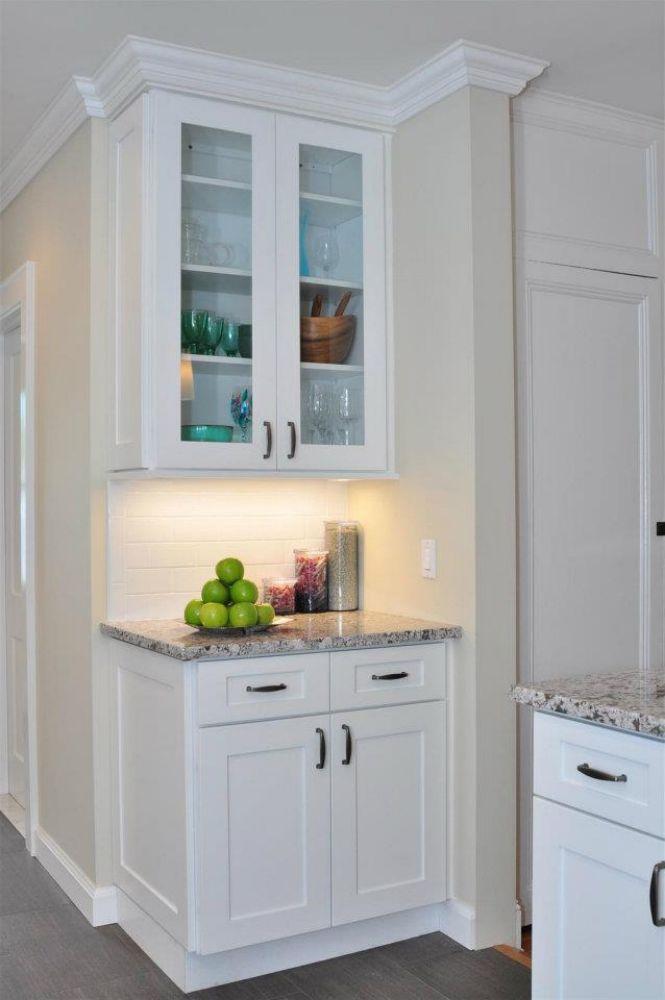How do I deal with odors in kitchen cabinets?
Odors in kitchen cabinets are more common than most homeowners realize. Whether caused by food spills, trapped moisture, or simply prolonged storage, unpleasant smells can linger and affect the freshness of your kitchen. Addressing these odors not only keeps your home clean and comfortable but also extends the life of your cabinets. Below, we’ll explore the best strategies to deal with these issues, preventative steps, and long-term care tips to maintain fresh-smelling kitchen cabinets.
Common Causes of Odors in Kitchen Cabinets
Kitchen cabinets are prone to odors because they are enclosed spaces that often store food, cleaning products, or cooking supplies. Some of the most common causes include:
-
Moisture buildup: Water leaks, spills, or humidity can create a breeding ground for mold and mildew.
-
Old food residue: Crumbs or spills that aren’t cleaned thoroughly can leave lingering smells.
-
Trapped grease: Cooking vapors often contain grease that settles inside cabinets, leading to odors over time.
-
Cleaning product fumes: Strong-smelling detergents, chemicals, or soaps can leave persistent scents.
-
Pet friendly homes: Storing pet treats or food in cabinets may introduce odors that cling to wood or laminate surfaces.
Identifying the cause is the first step toward eliminating the smell permanently.
Steps to Clean and Deodorize Cabinets
When odors are already present, a systematic cleaning process can restore freshness:
-
Empty the cabinets completely – remove all food, cookware, and supplies.
-
Wipe surfaces with warm soapy water – this removes grime, grease, and food residue.
-
Use a vinegar-water solution – vinegar neutralizes stubborn odors and kills bacteria.
-
Apply baking soda paste – perfect for absorbing and scrubbing away smells.
-
Rinse and dry thoroughly – moisture can cause future odors, so air-dry completely.
-
Place odor absorbers inside – baking soda bowls, activated charcoal, or even coffee grounds work well.
This deep-cleaning routine not only eliminates smells but also refreshes the appearance of your cabinets.
Natural Remedies for Fresh-Smelling Cabinets
For homeowners seeking eco-friendly and safe options, natural remedies are highly effective:
-
Baking soda: Place a small open container on the cabinet shelf to absorb odors.
-
White vinegar: Wipe down shelves with a diluted solution to neutralize smells.
-
Lemon peels: Fresh citrus rinds release a pleasant aroma and deter pests.
-
Activated charcoal: Excellent for long-term odor absorption.
-
Essential oils: A few drops of lavender or tea tree oil add freshness and antibacterial properties.
These methods are pet friendly and safe for families looking to avoid harsh chemicals.
Preventing Odors Before They Start
Prevention is the key to maintaining odor-free cabinets. Simple habits can make a big difference:
-
Store food in airtight containers.
-
Clean spills immediately to prevent staining and smells.
-
Avoid overcrowding cabinets, allowing air circulation.
-
Keep moisture away by using liners or moisture-absorbing packets.
-
Schedule seasonal deep cleaning of your cabinets.
By creating a consistent maintenance routine, you can enjoy fresh-smelling cabinets year-round.
Long-Term Maintenance Tips
Long-term strategies can help your cabinets stay in their best condition:
-
Install proper ventilation in your kitchen to reduce humidity and grease buildup.
-
Seal wooden cabinets with a protective finish to prevent odor absorption.
-
Rotate pantry stock to avoid forgotten or expired food.
-
Add cabinet liners to make cleaning spills easier.
-
Inspect for leaks regularly under the sink and near plumbing connections.
These steps extend the lifespan of your cabinets while reducing the chances of odors returning.
Why Choose Us?
At My Kitchen Cabinets, we understand that your cabinets are more than storage—they are the foundation of your kitchen’s functionality and design. We focus on craftsmanship, durability, and user-friendly features that make maintenance easier. Our selections include modern, classic, and pet friendly options designed to enhance both style and practicality. Choosing us means investing in cabinets that resist common issues like odors, wear, and moisture damage while adding long-lasting beauty to your home.
Conclusion
Dealing with odors in kitchen cabinets doesn’t have to be overwhelming. By identifying the cause, using effective cleaning techniques, and adopting preventative habits, you can keep your cabinets smelling fresh and inviting. With the right care and long-term maintenance strategies, your cabinets will remain both beautiful and functional for years to come.
Frequently Asked Questions
Q: How do I deal with odors in kitchen cabinets?
A: Start by emptying the cabinets, cleaning with soap and vinegar, and drying thoroughly. Use odor absorbers like baking soda or charcoal to maintain freshness, and prevent future smells with proper food storage and regular cleaning.
Q: What natural remedies work best for eliminating cabinet odors?
A: Baking soda, vinegar, lemon peels, and activated charcoal are effective natural remedies. They neutralize odors safely without introducing harsh chemicals into your home.
Q: Can odors indicate a bigger problem in my cabinets?
A: Yes, persistent odors may point to mold, mildew, or water damage. If smells linger despite cleaning, inspect for leaks or hidden moisture issues that need to be addressed.
Q: How often should I clean my cabinets to prevent odors?
A: A light cleaning every month and a deep cleaning seasonally (every 3–4 months) is ideal. This routine prevents buildup and helps you spot issues early.
Q: Are certain materials better at resisting odors?
A: Yes, sealed wood, laminates, and modern finishes are less likely to absorb odors compared to untreated surfaces. Choosing high-quality cabinets designed for durability helps prevent these problems.

